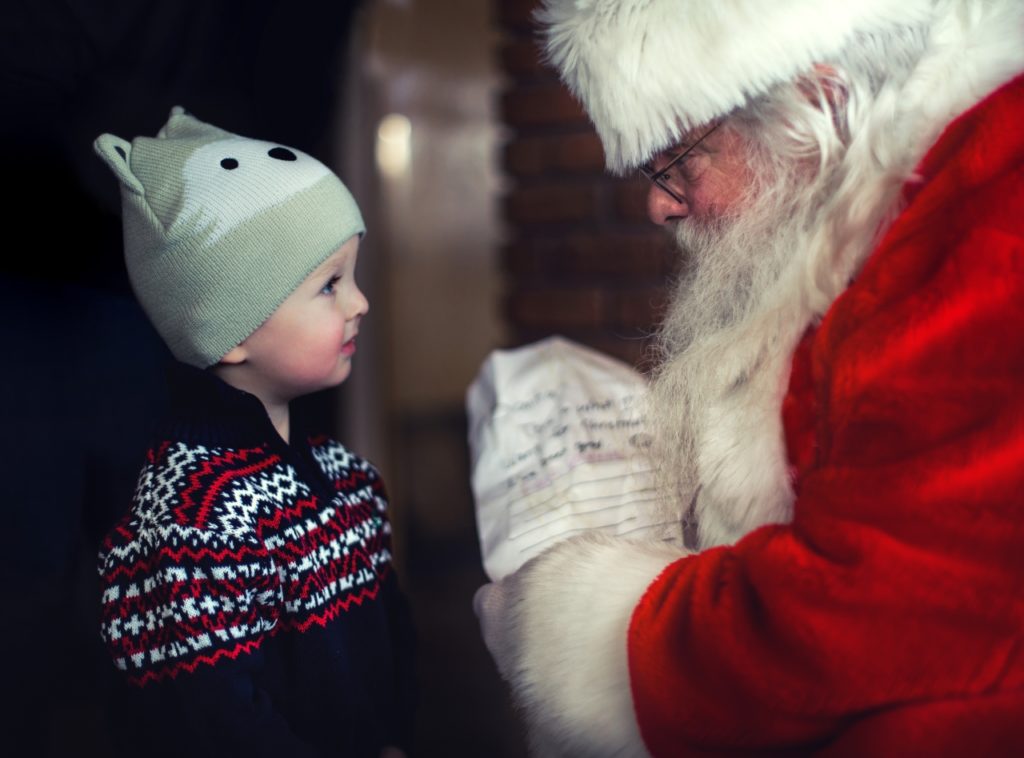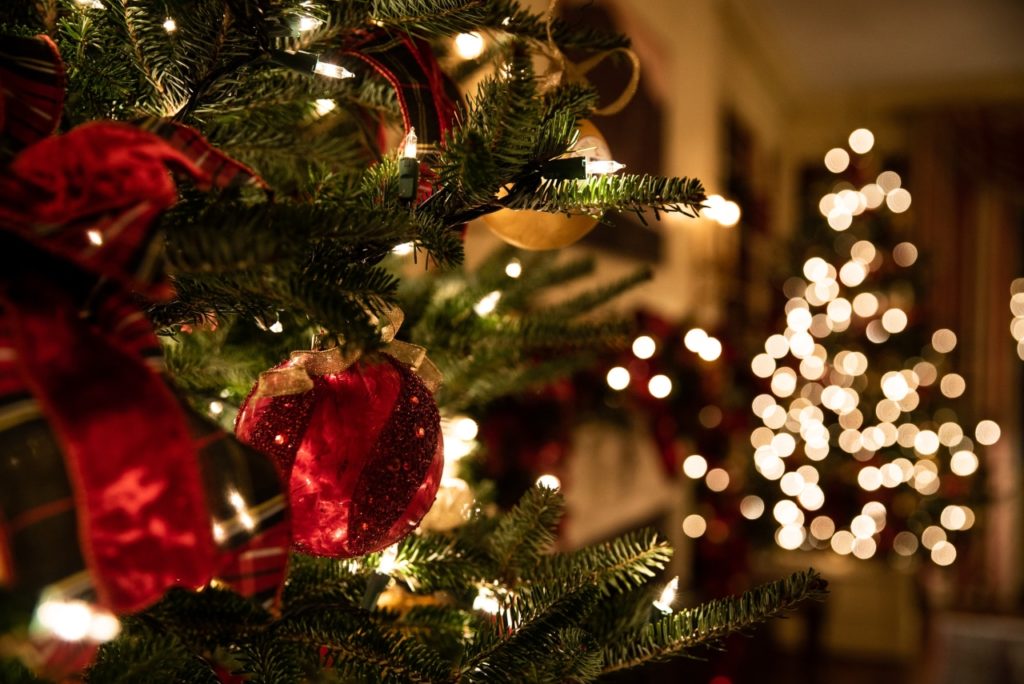
Buon Natale! (Italian)

Buon Natale! (Italian)
As winter holidays are drawing near, we think more and more about Christmas, spending time with our loved ones, big-hearted Santa Claus and all the beautiful presents he is going to bring. It’s a feeling like no other in the world – the Christmas feeling. And it wouldn’t be the same without the Christmas songs some of us stubbornly enjoy the entire month, the customary Christmas ugly sweater dads HAVE to wear and the Christmas movies marathon that gets us sleepy on Christmas Eve.
And in this time of pure joy, magic, and celebration, we often open our hearts more and find time to reconnect with all our friends around the world. This is why I thought I should help you learn how to say “Merry Christmas” in 21 different languages: from “Merry Christmas” in Spanish_(Feliz Navidad)_ to “Merry Christmas” in French_(Joyeux Noël)_ and “Merry Christmas” in German_(Frohe Weihnachten)._
Send them a short message, drop a long, sentimental e-mail or tag them in a short tweet. No matter your choice, spread some love this Christmas and make sure you let your friends overseas know that you are thinking about them. Just a simple “Merry Xmas” in their native language will do it. So here’s how to say “Merry Christmas” in 21 different languages.
Merry Christmas Around the World
- Spanish –¡Feliz Navidad!
- French –Joyeux Noël!
- German –Frohe Weihnachten!
- Italian –Buon Natale!
- Portuguese –Feliz Natal!
- Romanian –Crăciun Fericit!
- Russian –Счастливого Рождества! (Schastlivogo Rozhdestva!)
- Swedish –God Jul!
- Norwegian –God Jul!
- Danish –Glædelig Jul!
- Finnish –Hyvää Joulua!
- Icelandic –Gleðileg Jól!
- Polish –Wesołych Świąt!
- Dutch –Vrolijk Kerstfeest!
- Croatian –Sretan Božić!
- Czech –Veselé Vánoce!
- Japanese –メリークリスマス! (Merīkurisumasu!)
- Chinese –圣诞节快乐! (Shèngdàn jié kuàilè!)
- Korean –메리 크리스마스! (Meli Keuliseumaseu!)
- Latin –Felicem Natalem Christi!
- Irish –Nollaig Shona!
Now let’s go into a little more detail to make sure we know all the particularities of properly saying “Merry Christmas” in all these languages.
Spanish –¡Feliz Navidad!
¡Feliz Navidad, próspero año y felicidad! (“Merry Christmas, a prosperous year and happiness!”).
This sounds familiar, doesn’t it? That’s because it is one of the most popular Christmas songs in Spanish. So if you heard it, you probably already know that_¡Feliz Navidad!_ is “Merry Christmas” in Spanish.

“Santa and a fan” by Mike Arney©
French –Joyeux Noël!
Do you want to see what Christmas magic and miracles really mean? Then add the movie with the same name –Joyeux Noël – on your Christmas movies list and thank me later. I promise it won’t be cheesy. On the contrary!
German –Frohe Weihnachten!
Nothing compares to the warmth and magic of a German Christmas market. If you have never been to one, you should try going this year.Weihnachten (Christmas) is incredibly tasty in Germany!
Italian –Buon Natale!
Famous for its_bellezza_ and absolutely splendid seashores, Italy is also the home of highly religious Christmas traditions. One of the most important Italian Christmas celebrations is having_presepi_ (nativity scenes) everywhere.
Portuguese –Feliz Natal!
While in Portugal Santa Claus is known as_Pai Natal_ (“Father Christmas”), in Brazil people call him_Papai Noel_ or_Bom Velhinho_ (“Good Old Man”). Unlike many countries in Europe where Santa leaves presents under the Christmas tree, in Brazil kids leave a sock near a window hoping that Papai Noel will find it and exchange it for a present.

“The Christmas present we all need” by Jakob Owens©
Romanian –Crăciun Fericit!
Did you know that one of the most beautiful Christmas markets in Europe takes place in Sibiu? It’s almost like Santa had scattered magic dust all over the place. It’s breathtakingly beautiful!
Russian –Счастливого Рождества! (Schastlivogo Rozhdestva!)
While most countries celebrate Christmas on the 25th of December, Russia celebrates it on the 7th of January because the Russian Orthodox church uses “The old calendar” or the Julian calendar. And the 25th of December on the Julian calendar corresponds to the 7th of January in the Gregorian calendar.
Swedish – God Jul!
Nothing saysSwedish fika like brunch with a friend on Christmas Day. Or at least that’s how we, as nonlocals, imagine it. In reality, on Christmas Eve, Swedish people have an entire feast called_julbord_ with many different kinds of cold fish,julskinka (a type of Christmas ham), salads, cheeses, meatballs,prinskorv (Swedish sausages), jellied pigs’ feet,revbenspjäll (oven-roasted pork ribs) and many others. Mmm… Sounds delicious!
Norwegian –God Jul!
Christmas wasn’t celebrated in Norway until the XI century when Christianity first came to the area. But today, children in Norway patiently wait for_Julenissen_ (Santa Claus) every year in December.
But the most beautiful Norwegian Christmas tradition remains that of the Christmas Tree that Norway gives to the UK every year as a “thank you” for the help that British have to Norwegians during World War II.
Danish –Glædelig Jul!
In Denmark, it is said that the_Julemanden_ (“Christmas Man” or “Yule Man”) brings presents to children that were good during the year. Julemanden is very similar to Santa Claus, lives in Greenland, also travels in a sleigh pulled by reindeers and likes rice pudding.
Finnish –Hyvää Joulua!
You’d think this is where all the magic happens considering the fact that everybody believes Santa lives in Lapland, the northernmost region of Finland. But just until you hear this.
In Finland, Santa is also known as_Joulupukki_ – meaning “Christmas Goat”. Traditionally, many years ago, there was a scary Yule Goat who asked people for presents. But over time, the goat turned into a good character and then Santa took over the responsibilities. Still, the name of “Christmas Goat” remains.

“Christmas home” by Євгенія Височина©
Icelandic –Gleðileg Jól!
Jól (“Yule” or “Christmas”) in Iceland also includes the New Year celebrations.
It all starts on December 23 with Þorláksmessa or St. Thorlakur’s Day, when people eat a simple meal of_skata_ or_skate_ and decorate the Christmas tree. Then it continues with Aðfangadagur (Christmas Eve or Jól Eve), Jóladagur (Christmas Day or Jól Day) when the extended family meets and eats_Hangikjöt_ (a leg of roast lamb), Annar Jóladagur (Boxing Day) with more visiting and eating, Gamlárskvöld / Nýársdagur (New Year’s Eve / New Year’s Day) and – finally – Þrettándinn (Epiphany) that takes place on the 6th of January.
I don’t know about you, but I think I’m moving to Iceland because Christmas sounds like a lot of fun there!
Polish –Wesołych Świąt!
Poland is a largely Catholic country and Christmas Eve is a very important and, above all, busy day because people clean their houses and cook lots of food for the upcoming celebration days. Traditionally, Christmas Eve is considered a day of fasting and abstinence and meat is allowed to be eaten only on Christmas Day.
To wish someone a “Merry Christmas” in Polish, you can simply say “Wesołych Świąt!”.
![]()
Get on Santa’s Nice List
Last chance to get on Santa’s “Nice List” by learning languages with Mondly. 🎅
Dutch –Vrolijk Kerstfeest!
Dutch tradition says that_Sinterklaas_ (or Sint-Nicolaas) lives in Spain and every year, on the 5th of December (St. Nicholas’ Eve), he arrives in a different harbor in The Netherlands so as many children as possible get a chance to see him.
But Dutch Christmas celebrations are separate from the visit of Sinterklaas. On Christmas Eve,Kerstman (“Christmas Man”) comes from Lapland to bring even more presents (Dutch kids are the luckiest!). Then, on Christmas Day, the celebration continues with a Church Service and family meal.
Croatian –Sretan Božić!
In Khaleesi’s kingdom, people celebrate Christmas by fasting beforehand (the same as in the other largely Catholic countries) going to a Midnight Mass service and eating lots of tasty foods during Christmas Day. So no sign of dragons!

“Christmas lights” by T. Rampersad©
Czech –Veselé Vánoce!
Czech tradition says that Ježíšek or “Little Jesus” (the Czech_Christkind_) brings presents while children enjoy the Christmas Eve dinner and leaves them under the Christmas Tree.
Japanese –メリークリスマス!(Merīkurisumasu!)
In Japan, which is primarily Buddhist and Shinto, Christmas isn’t a traditional holiday. However, like other Western holidays and traditions, it has become increasingly popular in Japan since World War II. The only difference is that Christmas is seen as a romantic occasion for couples here. They also celebrate Thanksgiving . Suitably enough, the most famous Japanese Christmas song is “Christmas Eve” by Tatsuro Yamashita, which is about lovers unable to meet on Christmas Eve.
If you want to say “Merry Christmas” in Japanese, you can simply use the phrase “Merīkurisumasu!” which is a transliteration or adaptation of the English phrase “Merry Christmas”.
Latin –Felicem Natalem Christi!
To say “Merry Christmas” in Latin, you can use the phrase “Felicem Natalem Christi”. This expression is derived from the Latin words “felicem”, which means ‘happy’ or ‘joyful’; “natalem”, which means ‘birthday’ or ‘nativity’; and “Christi”, which is the genitive form of “Christus”, meaning Christ. Therefore,Felicem Natalem Christi can be translated as “happy birthday of Christ” or “joyful nativity of Christ” in reference to the birth of Jesus Christ.
Chinese –圣诞节快乐! (Shèngdàn jié kuàilè!)
In China, Christmas is not typically celebrated in a religious sense, but people enjoy the holiday for its commercial aspects, such as store discounts. It is becoming increasingly popular, especially among young people, who may be exposed to Christmas through English education and Western media. To say “Merry Christmas” in Chinese, you can use the phrase_圣诞节快乐 (Shèngdàn jié kuàilè)._
Korean –메리 크리스마스! (Meli Keuliseumaseu!)
In Korea, about 30% of the population is Christian, so many people attend church on Christmas. Afterward, they spend quality time with their families or go on shopping sprees.
Another tradition is that of the “One Thousand Four Angel Santas” or 1004 (천사)명의 산타 (cheonsamyeong-ui santa), which are groups of people who spend the holiday offering gifts to orphans and food to the elderly people.
“Merry Christmas” in Korean writing looks like this: 메리 크리스마스.
Irish –Nollaig Shona!
Just like anywhere else, in Ireland, Christmas is a time for celebrating with family and friends. Many people attend church services and celebrate the holiday with traditional meals and activities. Christmas Eve is typically a time for visiting with friends, while Christmas Day is spent at home with family. Popular traditions include decorating the Christmas tree, singing carols, and exchanging gifts.
“Merry Christmas” in Irish is_Nollaig Shona_ and it translates to “Merry Christmas to you”, rather than simply “Merry Xmas”.
Bonus: How to say Merry Christmas in 100 more languages
Search:
| Language | How to say “Merry Christmas” |
|---|---|
| Afrikaans | Geseënde Kersfees |
| Akan (Ghana) | Afehyia Pa |
| Albanian | Gëzuar Krishtlindjet |
| Amharic | Melkam Gena |
| Arabic | عيد ميلاد مجيد (Eid Milad Majid) |
| Armenian | Shnorhavor Surb Tsnund |
| Assamese (India) | শুভ বড়দিন (Shubh Bôṛôdin) |
| Azerbaijani | Milad Bayramınız mübarək |
| Basque | Eguberri on |
| Belarusian | З Калядамі (Z Kaliadami) |
| Bengali | শুভ বড়দিন (Shubho Borodin) |
| Bosnian | Sretan Božić |
| Breton (France) | Nedeleg laouen |
| Bulgarian | Весела Коледа (Vesela Koleda) |
| Burmese | Krismas nay hma mue pyaw pa |
| Catalan | Bon Nadal |
| Chichewa | Moni Wa Chikondwelero Cha Xmas |
| Cornish (England) | Nadelik Lowen |
| Cree (Canada) | Mitho Makosi Kesikansi |
| Dzongkha (Bhutan) | ༼ལོ་གསར་ལ་བཀྲ་ཤིས་བདེ་ལེགས་ཞུ།༽ (Losar La Bkra Shis Bde Legs Zhu) |
| Esperanto | Feliĉan Kristnaskon |
| Estonian | Häid jõule |
| Fijian (Fiji) | Me Nomuni na marau ni siga ni sucu |
| Filipino | Maligayang Pasko |
| Frisian (Netherlands/Germany) | Noflike Krystdagen |
| Galician | Bo Nadal |
| Georgian | Gilotsavt Shobas |
| Greek | Καλά Χριστούγεννα (Kala Christougena) |
| Greenlandic (Greenland) | Juullimi Pilluarit |
| Guarani (Paraguay) | Avyaitéte Ko Tupa Ray Ara |
| Gujarati | આનંદી નાતાલ (Anandi Natal) |
| Haitian Creole | Jwaye Nwèl |
| Hausa | Barka da Kirsimat |
| Hawaiian | Mele Kalikimaka |
| Hebrew | חג מולד שמח (Chag Molad Sameach) |
| Hindi | क्रिसमस की शुभकामनाएँ (Krismas ki shubhkaamnaayein) |
| Hungarian | Boldog Karácsonyt |
| Igbo | Ekeresimesi Oma |
| Indonesian | Selamat Natal |
| Inuktitut (Canada) | Quviasummi Quviasuqatigiittut |
| Kazakh | Рождество құтты болсын (Rojdestvo qutty bolsyn) |
| Khmer | រីករាយ បុណ្យណូអែល (Rikreay bon Noel) |
| Kinyarwanda (Rwanda) | Noheli Nziza |
| Kurdish | Kirîsmes pîroz be |
| Kyrgyz (Kyrgyzstan) | Рождествоңуздар менен (Rojdestvoñuzdar menen) |
| Lao | Sok Di Pi Mai |
| Latvian | Priecīgus Ziemassvētkus |
| Lingala (Congo) | Mbotama Malamu |
| Lithuanian | Linksmų Kalėdų |
| Luxembourgish | Schéi Chrëschtdeeg |
| Macedonian | Среќен Божиќ (Srećen Božić) |
| Malagasy | Mirary Krismasy |
| Malay | Selamat Hari Natal |
| Malayalam | ക്രിസ്മസ് ആശംസകൾ (Krismas āśaṁsakaḷ) |
| Maltese (Malta) | Il-Milied it-Tajjeb |
| Maltese | Il-Milied it-Tajjeb |
| Manx (Isle of Man) | Nollick Ghennal |
| Māori (New Zealand) | Meri Kirihimete |
| Maori | Meri Kirihimete |
| Marathi | शुभ नाताळ (Shubh Natal) |
| Mongolian | Зул сарын мэнд хүргэе (Zul sarin mend khürgee) |
| Nahuatl (Mexico) | Cualli netlācatilizpan |
| Navajo (USA) | Ya’at’eeh Keshmish |
| Nepali | क्रिसमसको शुभकामना (Krismasko Shubhakamana) |
| Occitan (France/Spain/Italy) | Bon Nadal |
| Oriya | ସୁଖସମୃଦ୍ଧି ବଡ଼ଦିନ (Sukhasamriddhi Baradina) |
| Pashto | کرسمس مو مبارک شه (Krismas mo mubarak sha) |
| Persian | کریسمس مبارک (Christmas Mobarak) |
| Punjabi | ਕ੍ਰਿਸਮਸ ਮੁਬਾਰਕ (Krismas mubārak) |
| Quechua (South America) | Sumaj kausay kachun Navidad ch’sisipi |
| Sámi (Northern Europe) | Buorrit Juovllat |
| Samoan | Manuia le Kirisimasi |
| Sanskrit (India) | क्रिसमसस्य शुभाशयाः (Krismasasya śubhāśayāḥ) |
| Scottish Gaelic (Scotland) | Nollaig Chridheil |
| Serbian | Срећан Божић (Srećan Božić) |
| Sesotho (Lesotho/South Africa) | Keresemese e monate |
| Shona (Zimbabwe) | Krisimasi yakanaka |
| Sindhi (Pakistan/India) | ڪرسمس جون واڌايون (Karisamas jūn vāḍāiyūn) |
| Sinhala | සුබ නත්තලක් (Suba nattalak) |
| Slovak | Veselé Vianoce |
| Slovenian | Vesel Božič |
| Somali | Kirismas Wacan |
| Swahili | Krismasi Njema |
| Tagalog (Philippines) | Maligayang Pasko |
| Tajik (Tajikistan) | Рӯзи милод муборак (Rūzi milod muborak) |
| Tamil | கிறிஸ்துமஸ் வாழ்த்துக்கள் (Kiristumas Vāḻttukkaḷ) |
| Tatar (Russia) | Раштуа белән (Raştua belän) |
| Telugu | క్రిస్మస్ శుభాకాంక్షలు (Krismas Śubhākāṅkṣalu) |
| Thai | สุขสันต์วันคริสต์มาส (Suk san wan Christmas) |
| Tigrinya (Eritrea/Ethiopia) | ርሑስ በዓል ልደት (Rhus be’al lidet) |
| Tonga (Zambia/Zimbabwe) | Kilisimasi fiefia |
| Turkish | Mutlu Noeller |
| Ukrainian | Веселого Різдва (Veseloho Rizdva) |
| Urdu | کرسمس مبارک (Krismas Mubarak) |
| Uzbek | Rojdestvo bayramingiz bilan |
| Vietnamese | Chúc Mừng Giáng Sinh |
| Welsh | Nadolig Llawen |
| Wolof (Senegal) | Noelin wu mbëggeel |
| Yiddish | אַ פֿריילעכן ניטל (A freylekhn nitl) |
| Zulu | UKhisimusi omuhle |
There you have it. This is how you say “Merry Christmas” in over 100 languages. Careful, though. While Christmas may be a beloved celebration for many, not everyone shares the same enthusiasm for the holiday season. It’s essential to be mindful of diverse perspectives and cultural backgrounds, as some individuals may not celebrate Christmas or may have different traditions during this time of year. Respecting and acknowledging these differences fosters inclusivity and ensures that the holiday spirit is shared with understanding and consideration for everyone’s beliefs and customs.
How does Santa know so many languages? This is his secret
Did you ever wonder how Santa knows so many languages ? Well, it seems that his well-kept secret has finally been divulged by the elves.
They say that during the other eleven months of the year, when Santa is making toys for children all around the world, he is also using this amazing invention called Mondly to learn languages. Over the years, he got better and better and he is now close to mastering all the 33 languages available in this incredible tool.
Moreover, the elves say that Santa loves to learn languages with Mondly because “it is as easy as playing a game!” – he says. In just 5 minutes a day, before going to sleep, Santa practices Spanish, French, German and many more with practical topics and authentic conversations recorded by fluent voice artists so he can tackle day-to-day situations.
Santa swipes up and down, selects the right answer, arranges letters into words and words into sentences, uses his voice to repeat the correct pronunciation of certain words and earns points for every completed lesson. The elves also say they can even hear him say, “Ho ho ho” when he levels up. That’s how much he loves Mondly!
So Christmas magic is real: you can now learn a new language faster than Santa’s sleigh! Just use Mondly, Santa’s secret to speaking languages fast.
Do you want to learn languages as fast as Santa Claus?
Also read:
- [New] 2024 Approved Extended Review Easy Dynamic Range Explained
- [New] Excellent Record Maker Chromebook Edition
- [Updated] Cognitive Cornerstones Essential Educational Content YT
- Ace the Language Game - Find Success with These 6 Effective Techniques
- Comprensión Vital Del Corazón: Una Jornada Completa Desde El Estómago A Los Pulmones En Español
- Easy Fixes How To Recover Forgotten iCloud Password On your Apple iPhone 12 mini
- Echoes From Ancient Persia, Future Benefits in Language
- Educational Innovation: Mondly Kids, A 2017 Google Play Gem
- Exclusive Offer Alert: Lifetime Free, Up to 96% Off Mondly Pro!
- Google Play Services Wont Update? 12 Fixes are Here on Xiaomi Redmi Note 13 Pro+ 5G | Dr.fone
- In 2024, How to Mirror OnePlus Open to Mac? | Dr.fone
- Navigating New Frontiers Metaverses Vs. Omniverse for 2024
- Plagiarism Perils: Chatbot Source Evaluation
- YouTube音源のPC上で簡易な録画手順とヒント
- Title: Buon Natale! (Italian)
- Author: Christopher
- Created at : 2024-12-10 18:58:10
- Updated at : 2024-12-16 20:39:08
- Link: https://mondly-stories.techidaily.com/buon-natale-italian/
- License: This work is licensed under CC BY-NC-SA 4.0.